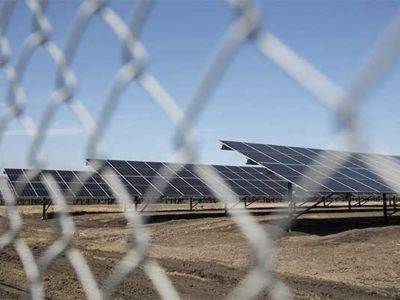Martillac, France — Exosun has been selected by EDF Energies Nouvelles, a global market leader in green electricity production, to equip two thirds of a 146 MWp PV plant in the Chilean Atacama desert with its trackers, and to provide a complete set of services including engineering, logistics and construction support.
This PV project, one of the largest in Chile, represents the most significant agreement signed by Exosun since its founding.
Exosun’s Exotrack® HZ horizontal single-axis solar trackers will be installed on rocky, hilly, desert land. They will support 277,360 PV modules, orienting them toward the sun throughout the day to significantly increase energy yield.
In addition to supplying its trackers, Exosun will provide technical assistance to EDF Energies Nouvelles throughout the construction and commissioning phases of the plant in order to ensure the optimal performance of the Exotrack® HZ and accelerate its client’s ROI. With a tracker installation rate of 1 MWp /day, Exosun is committed to a ‘just-in-time’ delivery of its tracker parts.
“After a long and rigorous selection process, we are thrilled to earn the opportunity to work with EDF Energies Nouvelles, a major global energy producer, and contribute to increasing their project’s profits with our high performance tracking systems,” commented Exosun President Frédéric Conchy. “We‘re looking forward to proving on the field the technical superiority of our product and the added value of our engineering support capabilities. The contract, the biggest one signed by Exosun since its founding, enables us to enter the booming Chilean market.”
Jean-Philippe Salomé, Vice President Industry at EDF Energies Nouvelles, said: “We are pleased to collaborate with Exosun, an innovative startup we supported at an early stage of development. The high level of experience gained by Exosun over the past years enabled them to build a competitive offer, in terms of reliability, cost and maximization of energy output. The location of the solar plant, in the highly irradiated Atacama Desert of Chile, makes the trackers even more efficient and affordable.”
The solar plant will produce approximately 362,000 MWh annually, enough electricity to power 120,000 homes, and prevent 288,000 tons of carbon dioxide emissions yearly[1]. Tracker commissioning, executed by Exosun, is scheduled for the last quarter of 2016.













Comments